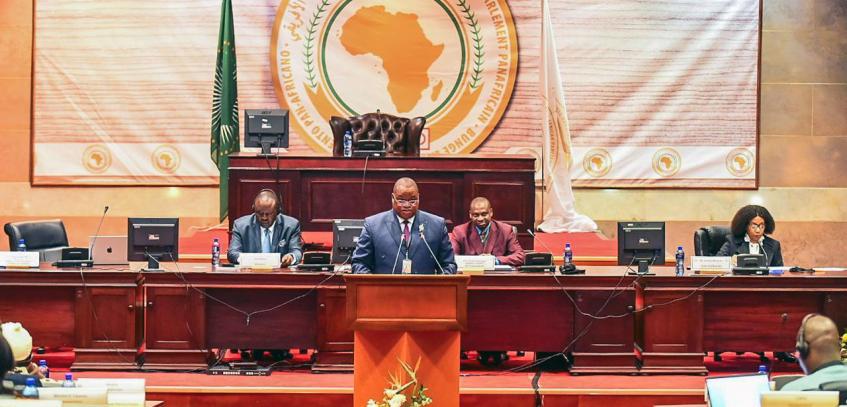The African Union has boldly proclaimed its 2024 theme: "Educate an African fit for the 21st Century: Building resilient education systems for increased access to inclusive, lifelong, quality, and relevant learning in Africa."
This theme centers on fostering an environment where all students, regardless of background or ability, are provided with equitable access to quality education in their communities. Despite the significance of the theme in the progression of the continent, it highlights the many challenges that continue to hinder its progress. The Pan-African Parliament workshop dedicated to this theme, held on Wednesday, sought to interrogate these challenges and investigate the best ways to mitigate them for the advancement of education.
The first challenge identified relates to barriers associated with disability: "Many children with disabilities in Africa face significant obstacles to accessing education due to a lack of appropriate facilities, trained teachers, and support services. Discrimination, stigma, and inaccessible infrastructure further exacerbate their challenges in accessing quality education."
The second hindrance is no stranger to the African continent: widespread poverty prevents millions of children from attending school due to financial constraints. "Poverty not only limits access to schooling but also affects the quality of education received, as families struggle to afford school fees, uniforms, and learning materials. Additionally, children from impoverished backgrounds often face additional challenges such as malnutrition, health issues, and inadequate housing, which further hinder their educational attainment."
The workshop also identified cultural factors, such as traditional beliefs concerning gender roles or attitudes towards disability, which discourage certain groups like girls or children with disabilities from participating in education. "Language barriers and the lack of culturally relevant teaching materials also impede learning for marginalized groups."
Alongside these circumstantial barriers, the Pan-African Parliament workshop also identified teacher training and capacity as impediments to progress. "Many teachers lack the knowledge, skills, and resources needed to effectively support diverse learners in inclusive classrooms, including understanding how to differentiate instruction, adapt curriculum, and create inclusive learning environments that accommodate the needs of all students."
As lawmakers, Pan-African parliamentarians are tasked not only with representing their member states but also with grappling with challenges facing countries on the continent in their quest to find solutions. In light of this responsibility, the 3rd Ordinary Session of the Pan-African Parliament sought to explore possible strategies for implementation to advance the 2024 AU theme.
The interventions discussed began at a policy framework level, including the establishment of regional and national task teams to oversee the implementation of inclusive education policies. "This will include integrating human rights education to foster a culture of acceptance, respect, and empathy among individuals from different backgrounds." Another aspect involves infrastructure development, emphasizing sustainable building practices in school construction projects.
Teacher training also tops the list, promoting peer mentoring among teachers, encouraging knowledge sharing, and incentivizing excellence among educators. Curriculum adaptation is also crucial, with an increasing need to integrate indigenous knowledge systems and wisdom into education curricula to foster pride and identity among African learners.
Given the ever-changing global landscape, ICT integration is crucial. Countries are encouraged to develop localized and contextually relevant digital educational content and applications.
Another strategy to achieve these goals involves collaboration and resource allocation, promoting innovative financing mechanisms like public-private partnerships and crowdfunding initiatives.
Lastly, the effectiveness of all proposed strategies will rely on monitoring and evaluation, with ongoing research to assess the success of these inclusive education interventions.
The Pan-African Parliament workshop resolved that ensuring all students, including those with disabilities and other marginalized groups, have equal access to education is paramount. Inclusive education contributes to breaking down barriers and fostering a culture of respect, understanding, and acceptance, leading not only to an educated continent but also to a prosperous Africa.








